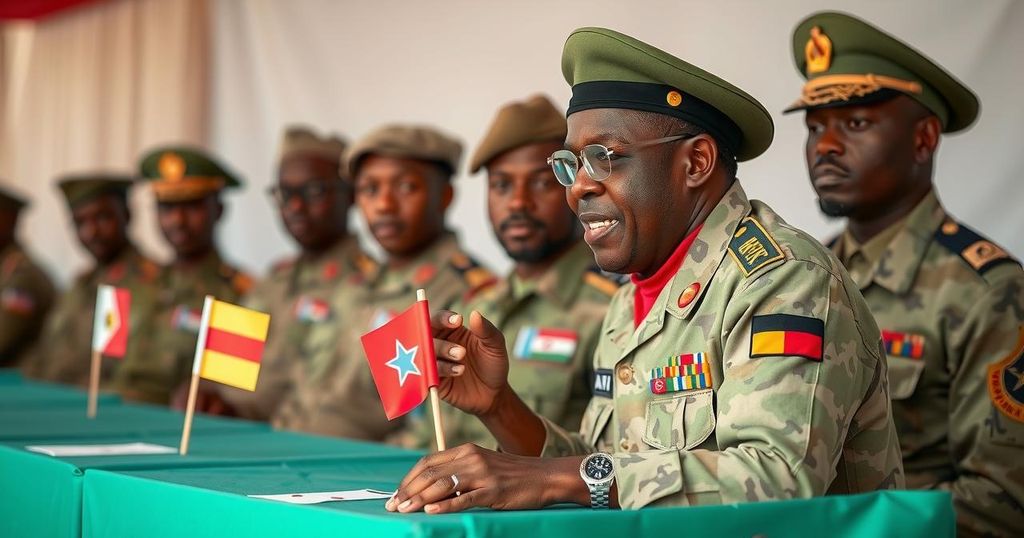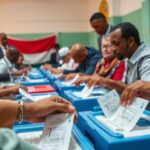Chad’s General Election: A Step Towards Ending Military Rule Amid Voter Apathy
Chad held a general election aimed at concluding three years of military rule, yet turnout was dismally low at 38 percent due to an opposition boycott. Critics, including opposition leader Succes Masra, claimed election results were predetermined. President Mahamat Idriss Deby encouraged participation, while widespread voter skepticism raised concerns over electoral integrity amid socio-economic difficulties and ongoing regional conflicts.
On Sunday, Chad conducted a general election, which the government declared crucial for concluding military governance established since 2021. However, voter turnout was markedly low, with preliminary reports indicating only 38 percent participation due to an opposition-led boycott. Despite government claims of a record turnout among military personnel and nomadic citizens, critics such as Succes Masra, leader of the opposition Transformers party, condemned the legitimacy of the election, asserting that the outcomes had already been predetermined.
President Mahamat Idriss Deby Itno, who has been in power since inheriting leadership after his father’s death, called on citizens to vote vigorously, describing the day as historic. In contrast, many voters expressed skepticism regarding the voting process, with individuals like Herve Natouingan labeling the elections as “pointless” and calling attention to widespread disillusionment with the political system. Meanwhile, the opposition raised concerns about alleged ballot tampering, voraciously demanding that citizens remain vigilant against electoral fraud.
Chad’s election management agency referred to the military and nomadic voter turnout as record-high, boasting figures such as 72 percent for the army. Nonetheless, the elections are overshadowed by ongoing regional security issues, such as the threats from Boko Haram and the broader context of political legitimacy following internal power transitions. Observers from various political parties and foreign entities monitored the proceedings.
Despite presenting these elections as pivotal for democracy, the opposition has reiterated claims of systematic failures in the electoral process and may yield further unrest. The current political climate continues to challenge the prospects for a smooth transition to civilian governance, exacerbated by the prevailing economic issues and environmental crises affecting nomadic communities.
Given these complexities, the road ahead for Chad remains uncertain as citizens and leaders alike grapple with the implications of the election and the governing authority’s legitimacy.
Chad has experienced tumultuous governance under military rule since the ascension of Mahamat Idriss Deby Itno, who took control following the death of his father, former President Idriss Deby. This election marks a key moment in the country’s shift towards democracy, with significant political resistance from opposition parties advocating for boycotting the electoral process. The backdrop includes acute social and economic challenges that have compounded voter disillusionment. The complicated relations between Chad and its neighboring countries, influenced by security threats like Boko Haram and the crisis in Sudan, further complicate the political landscape, impacting citizen participation in governance and the legitimacy of electoral processes.
In conclusion, the general election in Chad illustrates the significant divide between the ruling government and opposition parties amidst a climate of voter apathy and skepticism regarding electoral legitimacy. The low turnout, attributed to organized boycotts, indicates prevailing dissatisfaction among citizens towards the political process. Furthermore, the pressing socio-economic issues compounded by regional conflicts underscore the difficulties Chad faces on its path toward genuine democracy and governance reform.
Original Source: www.wyomingnewsnow.tv








Post Comment